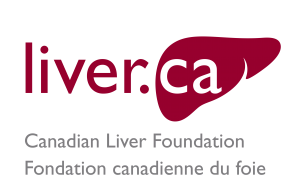Ask a Dietitian – Anisha
Ask a Dietitian, with Anisha

By: Anisha Vijh, RD | June 18, 2024
Today, we’re thrilled to launch our latest blog series: Ask a Dietitian. Nutrition information is widespread, and it can be challenging to know what and who to trust. Our goal is to debunk myths and assumptions about nutrition and liver health, to set you up for a lifetime of healthy eating.
This question and answers series will feature various dietitians in the industry, including me, Anisha, the Canadian Liver Foundation’s in-house registered dietitian. Let’s get started!
Are smoothies healthy for me?
Smoothies can be a great way to incorporate fibre, protein, and extra nutrition into your day. Some smoothies, often pre-packaged, or ones made at certain stores, may not have much fibre or protein. Fibre and protein are two of the best components to help give your smoothie its staying power and keep you full and energized throughout the day. Whether you’re making your own or buying smoothies, focus on having a source of protein (think protein powder, Greek yogurt, silken tofu, dairy or higher protein plant milk), fibre (fruits, veggies, seeds), and if possible, a healthy fat (nut or seed butter, ground flax, avocado, or tofu). These are all great additions to your smoothie for added satisfaction and fullness. Healthy fats can also help you better absorb some of the nutrients found in your smoothie!
What is it about green juice?
Any kind of juice, including green juices, while tasting delicious, can potentially include added sugars, and additionally lack fibre. When we juice fruits and vegetables, we’re often removing their fibre. Fibre is very important for gut health, as it helps with bowel movements, it feeds our gut microbiome, provides feelings of fullness, and helps to regulate blood sugar. By getting rid of fibre when juicing, the body absorbs the sugar found in these juices much faster, which can spike your blood sugar. This can lead to feeling tired, hungry, or irritable shortly after. Fibre is something most Canadians are lacking, so being mindful to add fibre where possible, in the form of whole foods preferably, is a great way to get in some key nutrition throughout the day. Consider what’s in your green juice and how you might be able to incorporate some of those veggies and fruits in other forms. If you’re looking for a swap, water is the liver’s best friend, so when in doubt, choose that!
What does “whole foods” even mean?
“Whole foods” is a term that is used when we are talking about nutrition, diet, and lifestyle. It can be a confusing term, but it doesn’t need to be! A whole food is something that’s been minimally processed. Processing is a useful and a necessary tool to move food from farms, fields, and faraway places to our tables. This can include washing, chopping, cooking, canning, freezing, or milling.
A minimally processed food is a product that has went through one or more of these processes. Processed foods can have more additives, preservatives, added sugars, fats, or salt.
Whole foods include fruits and vegetables, legumes and pulses (think beans and lentils), whole grain products (bread, oats, popcorn, barley, quinoa, etc.), dairy products (milk, yogurt, cheese), animal products like eggs, fish, chicken, pork, beef, or seafood. Watching out for added sugars, salt, or fats in canned or packaged whole foods is important for liver health too.
Foods like some deli meats, smoked or cured meats, or ultra-processed foods (chips, candy, chocolate, ice cream, many fried foods, sugary cereals), wouldn’t fall under the umbrella of “whole foods”. This doesn’t mean we can’t ever eat them, but limiting them in our everyday diet, and being mindful of when we do eat them, helps not only with liver health, but overall health too.
Canada’s Food Guide is a great reference point for some examples of whole foods too! Looking at the foods included in their plate model may help to spark some ideas for your next meal. If you’re looking for more recipes, you can also browse the Canadian Liver Foundation’s website too, like in our Healthy Liver Pantry!
—
If you have any of your own questions for the next edition ‘Ask a Dietitian’, we’d love to hear from you! Email us at clf@liver.ca.


